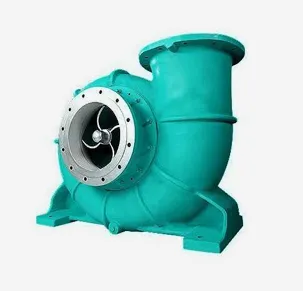English
- Afrikaans
- Albanian
- Amharic
- Arabic
- Armenian
- Azerbaijani
- Basque
- Belarusian
- Bengali
- Bosnian
- Bulgarian
- Catalan
- Cebuano
- Corsican
- Croatian
- Czech
- Danish
- Dutch
- English
- Esperanto
- Estonian
- Finnish
- French
- Frisian
- Galician
- Georgian
- German
- Greek
- Gujarati
- Haitian Creole
- hausa
- hawaiian
- Hebrew
- Hindi
- Miao
- Hungarian
- Icelandic
- igbo
- Indonesian
- irish
- Italian
- Japanese
- Javanese
- Kannada
- kazakh
- Khmer
- Rwandese
- Korean
- Kurdish
- Kyrgyz
- Lao
- Latin
- Latvian
- Lithuanian
- Luxembourgish
- Macedonian
- Malgashi
- Malay
- Malayalam
- Maltese
- Maori
- Marathi
- Mongolian
- Myanmar
- Nepali
- Norwegian
- Norwegian
- Occitan
- Pashto
- Persian
- Polish
- Portuguese
- Punjabi
- Romanian
- Russian
- Samoan
- Scottish Gaelic
- Serbian
- Sesotho
- Shona
- Sindhi
- Sinhala
- Slovak
- Slovenian
- Somali
- Spanish
- Sundanese
- Swahili
- Swedish
- Tagalog
- Tajik
- Tamil
- Tatar
- Telugu
- Thai
- Turkish
- Turkmen
- Ukrainian
- Urdu
- Uighur
- Uzbek
- Vietnamese
- Welsh
- Bantu
- Yiddish
- Yoruba
- Zulu
Telephone: +86 13120555503
Email: frank@cypump.com
Nov . 20, 2024 20:20 Back to list
pump septic tank
Understanding Pumping a Septic Tank A Comprehensive Guide
Septic systems are crucial for managing wastewater in areas without centralized sewer systems. They treat and dispose of sewage on-site, ensuring sanitation and environmental protection. However, one of the essential maintenance tasks for a septic system is the pumping of the septic tank. This article explores what septic tanks are, why they need to be pumped regularly, and how to ensure proper maintenance to extend their lifespan.
What is a Septic Tank?
A septic tank is an underground chamber made of concrete, fiberglass, or plastic that receives and processes household wastewater. The tank works by allowing solids to settle at the bottom, forming sludge, while lighter materials like grease float to the top, creating a scum layer. Meanwhile, the clarified liquid effluent flows from the tank into a drain field, where it percolates into the soil, undergoing natural filtration processes.
Why Do Septic Tanks Need Pumping?
Septic tanks have limited capacity, and over time, the solids and scum build up. If not adequately managed, several issues can arise
1. Clogging Excess sludge can clog the outlet pipe, preventing effluent from exiting the tank properly. This can lead to backups in the home and other problems in the system. 2. Reduced Efficiency High levels of solids can disrupt the natural breakdown process of bacteria within the tank, leading to inefficient treatment of wastewater.
3. Environmental Hazards Overfilled tanks can overflow or leak, potentially contaminating groundwater and local waterways, resulting in health hazards and environmental damage.
As a rule of thumb, septic tanks should be pumped every 3 to 5 years, depending on usage, the size of the tank, and the number of occupants in the household.
How to Know When to Pump Your Septic Tank
Several signs indicate that your septic tank may need pumping
pump septic tank

- Odors Unpleasant odors around the septic tank or drain field can suggest that the system is failing or that the tank is full. - Slow Drains If your sinks, toilets, and tub drains are slow, it may be due to a full tank or clogs in the system. - Backups Frequent backups in your plumbing are a clear sign that the septic tank requires attention. - Pooling Water If you notice pooling water above the drain field, it can signal that the tank is full or that the drainage system is malfunctioning.
Choosing a Professional for Septic Tank Pumping
When it’s time to pump your septic tank, it's essential to hire a licensed and experienced septic service provider. They will
1. Inspect the System A thorough inspection ensures there are no significant issues before pumping. 2. Pump the Tank The provider will use specialized pumps to remove all sludge and scum from the tank. 3. Disposal They will dispose of the waste according to local regulations, ensuring environmental safety.
Maintaining Your Septic System
To prolong the life of your septic system and reduce the frequency of pumping, consider the following maintenance tips
- Avoid Flushing Non-Biodegradable Items Items like wipes, feminine hygiene products, and grease can disrupt the system and lead to clogs. - Use Water Wisely Limit heavy water usage during short periods. Space out laundry loads and avoid running multiple appliances simultaneously to lessen the load on the septic system.
- Know Your System Be aware of the location of your septic tank and drain field, and maintain these areas free of heavy landscaping or vehicles.
- Regular Inspections Schedule routine inspections with a professional to catch any potential issues early.
Conclusion
Pumping your septic tank is an essential maintenance task that helps ensure the longevity and proper functioning of your septic system. By understanding the importance of regular pumping and practicing good maintenance habits, you can protect your home, the environment, and ensure your septic system continues to operate efficiently for years to come. Remember to consult with professionals to keep your system in top shape and address any concerns promptly.
-
Heavy-Duty Mining Sludge Pumps - Wear-Resistant Slurry Handling
NewsAug.02,2025
-
Horizontal Split Case Pump with GPT-4 Turbo | High Efficiency
NewsAug.01,2025
-
ISG Series Pipeline Pump - Chi Yuan Pumps | High Efficiency, Durable Design
NewsAug.01,2025
-
Advanced Flue Gas Desulfurization Pump with GPT-4 Turbo | Durable & Efficient
NewsJul.31,2025
-
ISG Series Vertical Pipeline Pump - Chi Yuan Pumps | Advanced Hydraulic Design&Durable Construction
NewsJul.31,2025
-
ISG Series Vertical Pipeline Pump - Chi Yuan Pumps | Energy Efficient & Low Noise
NewsJul.31,2025










